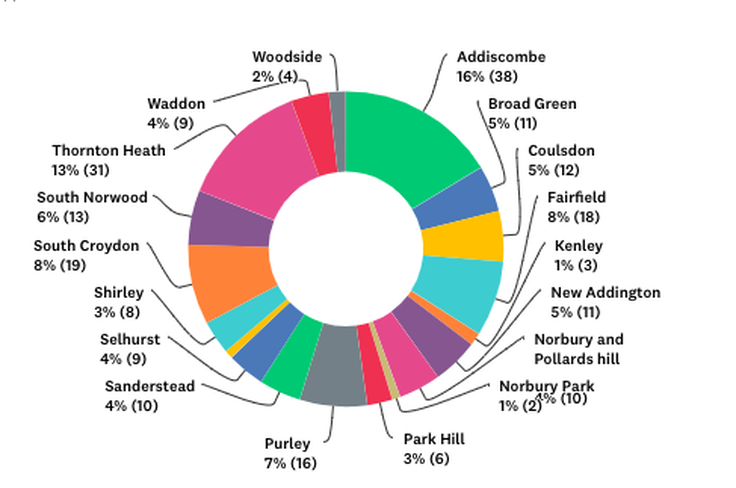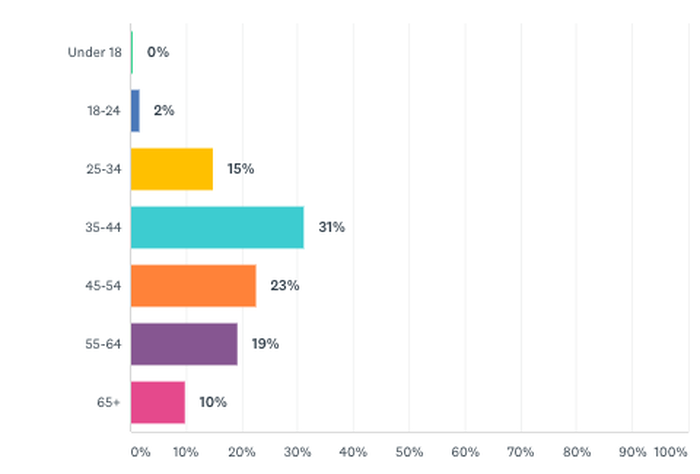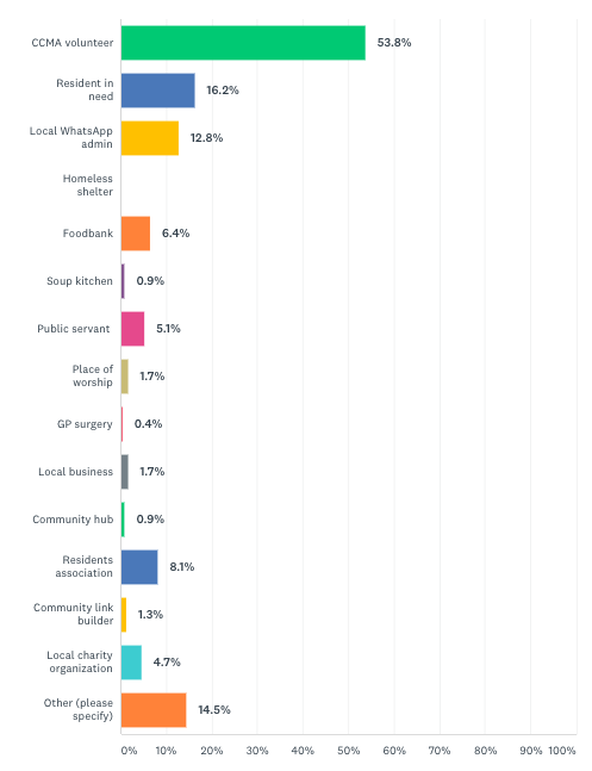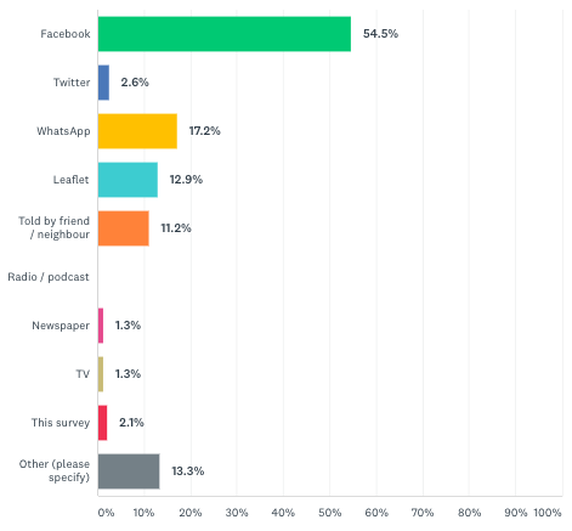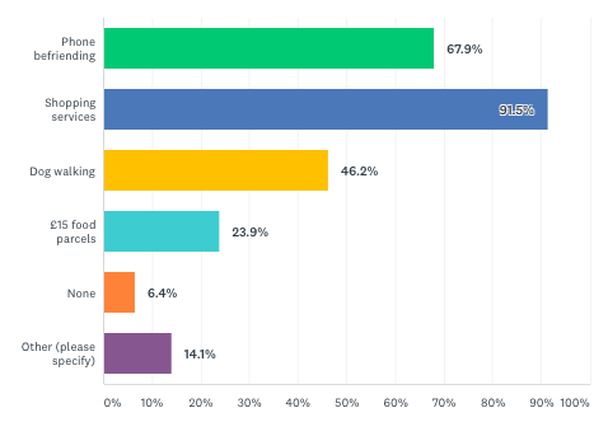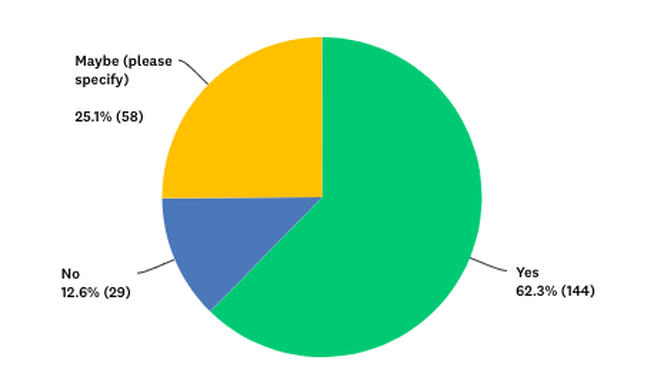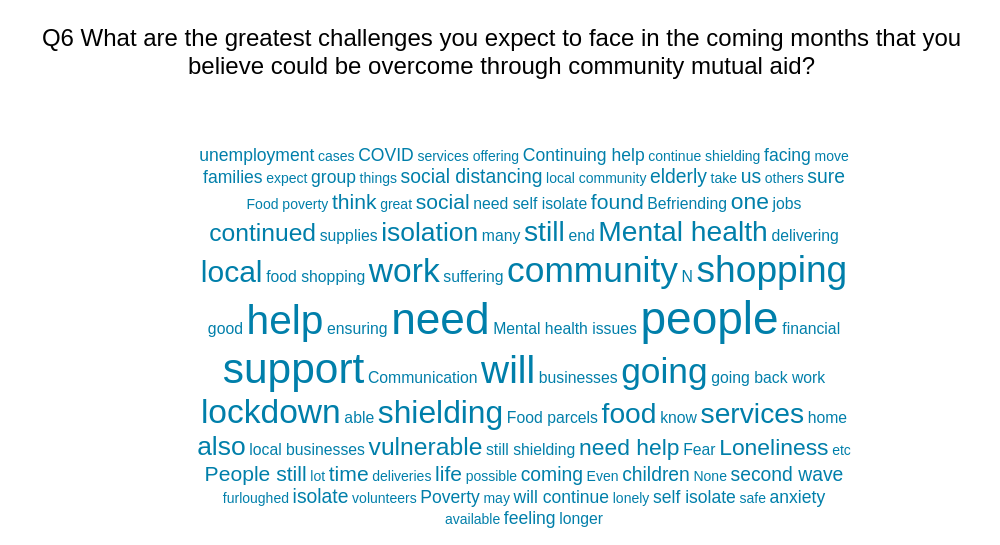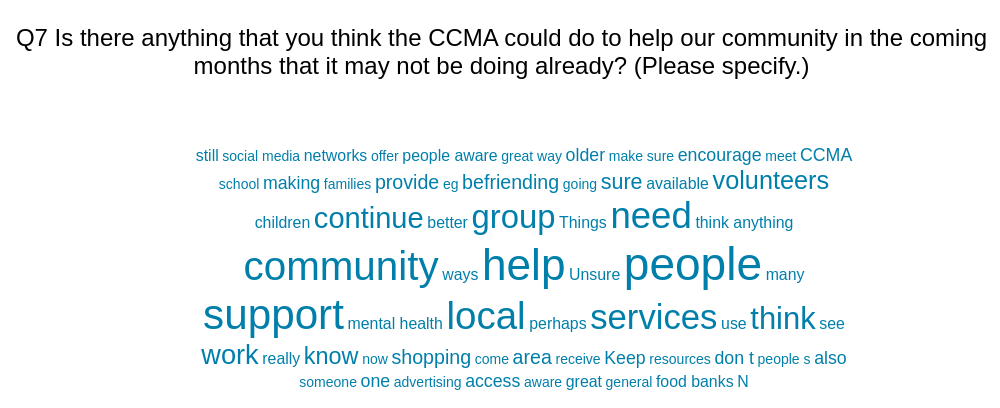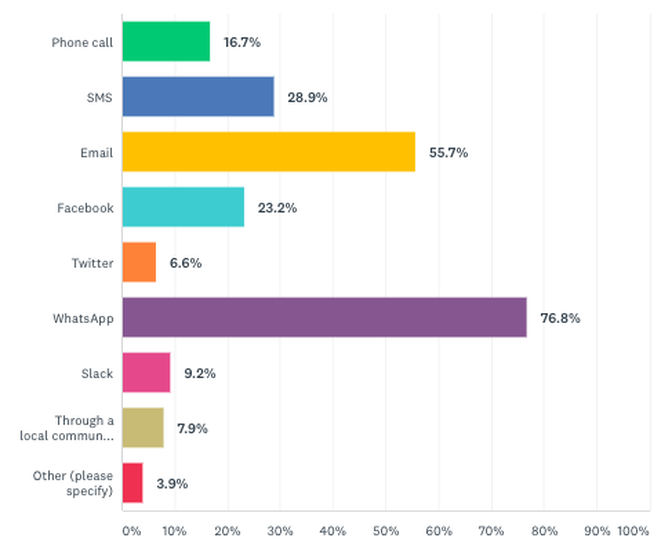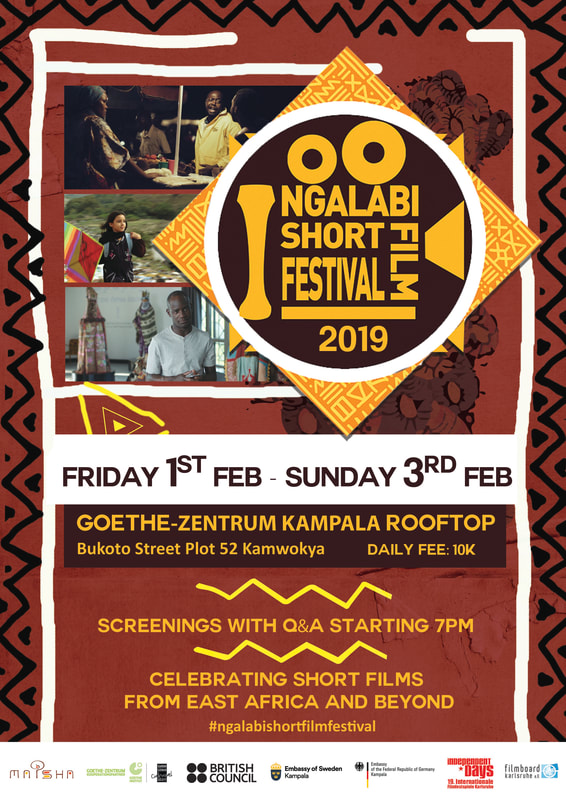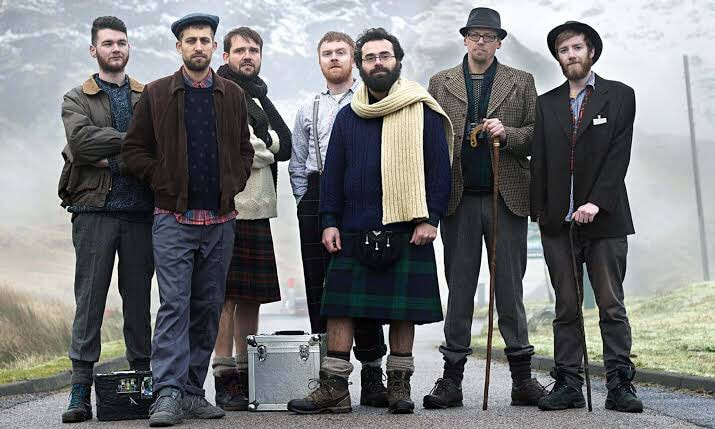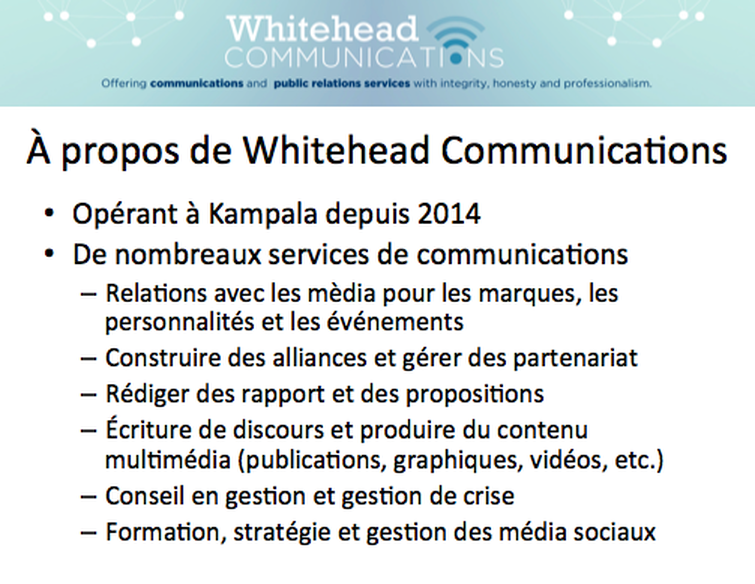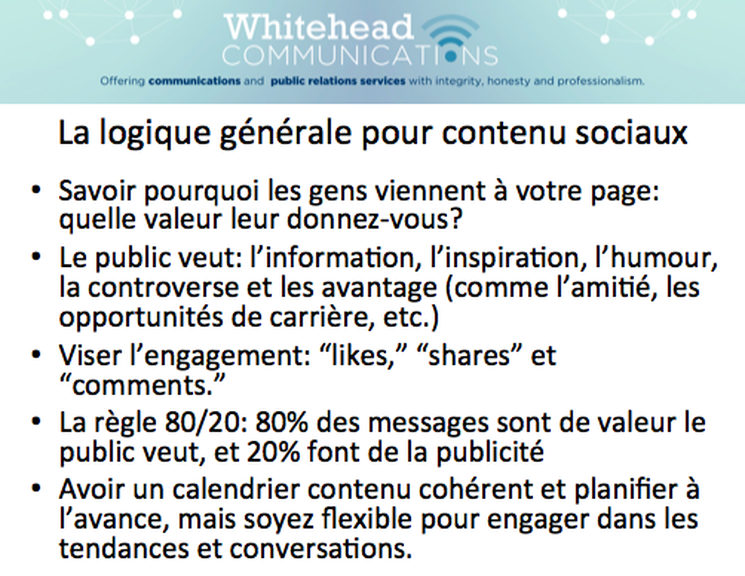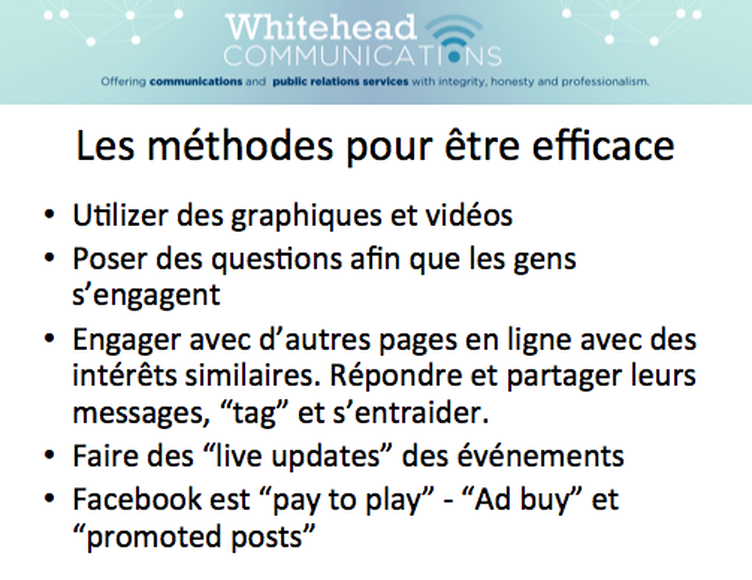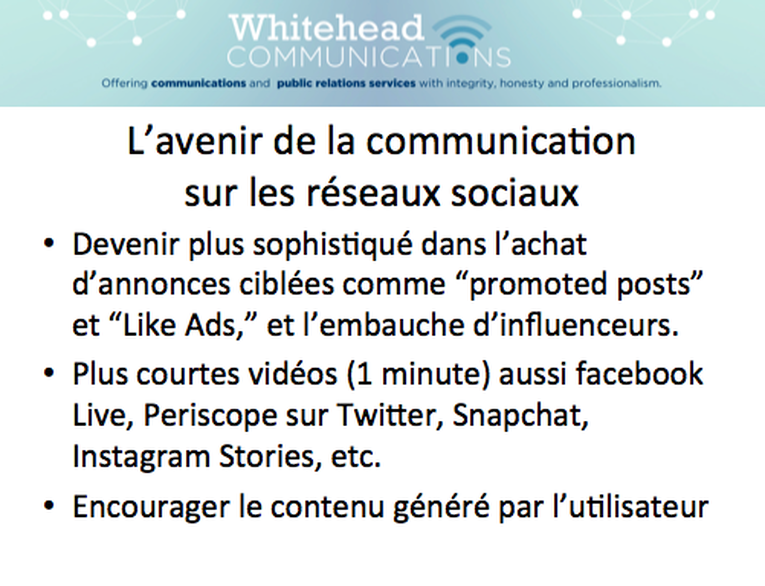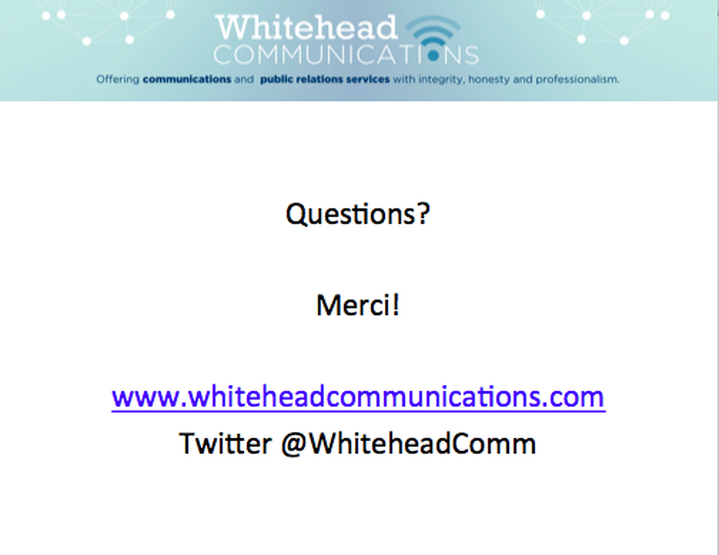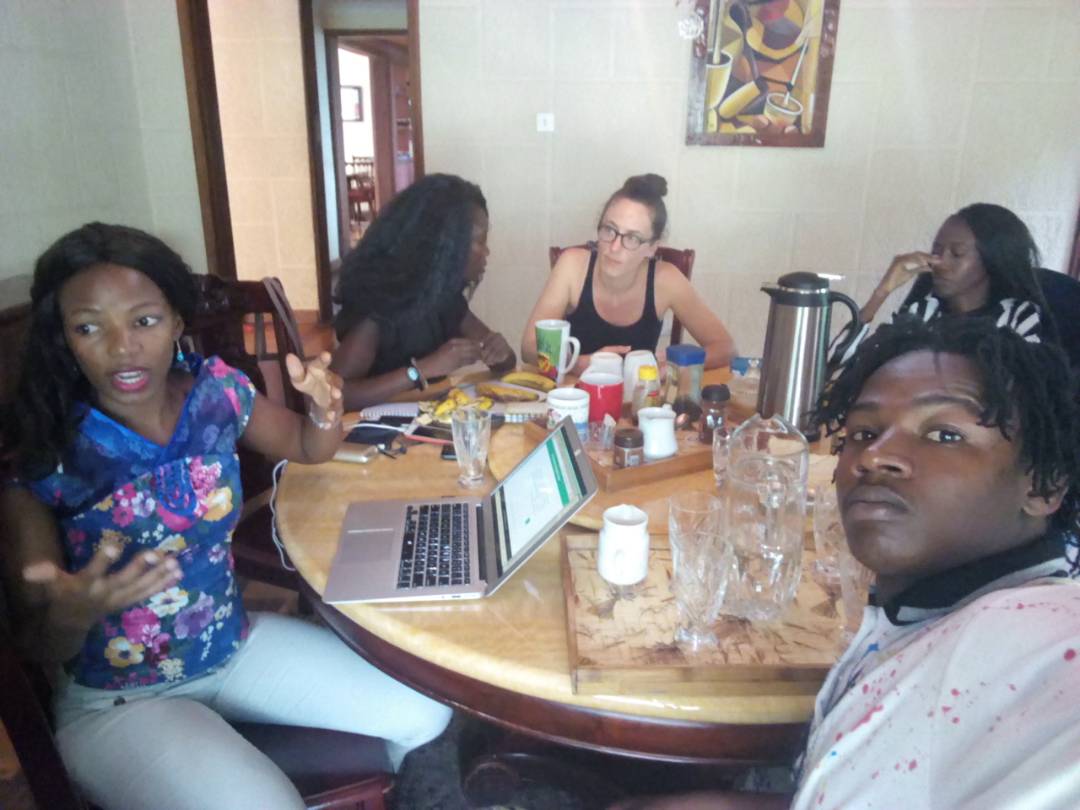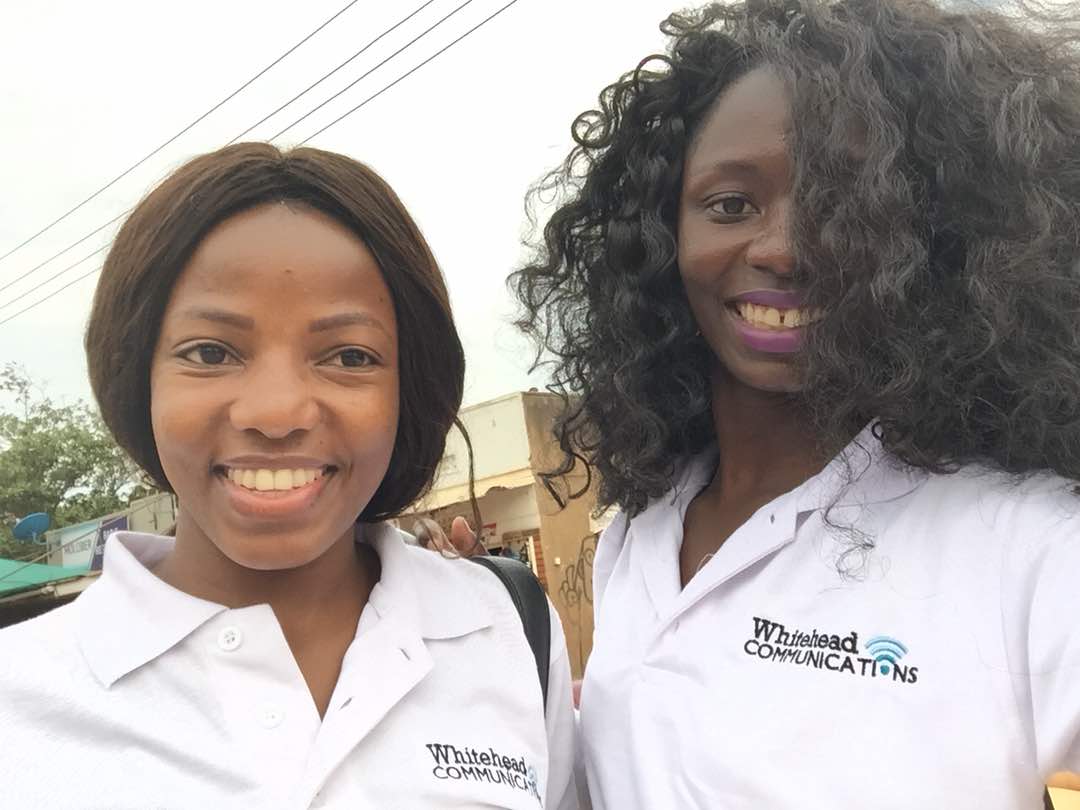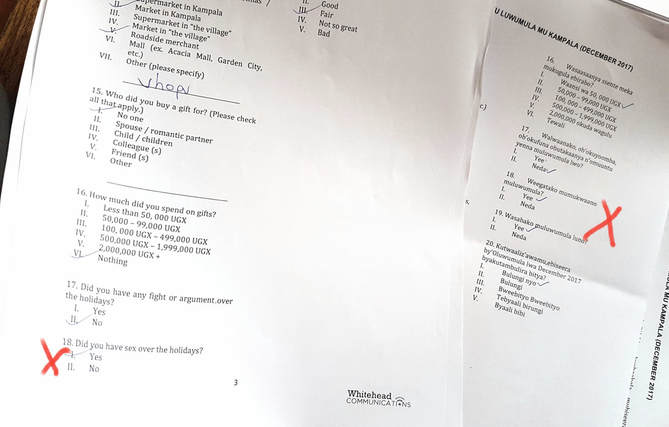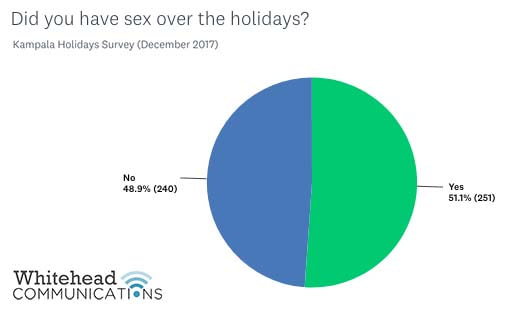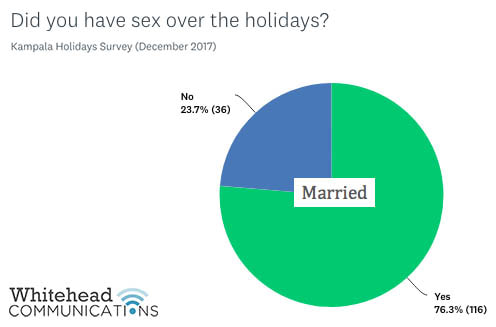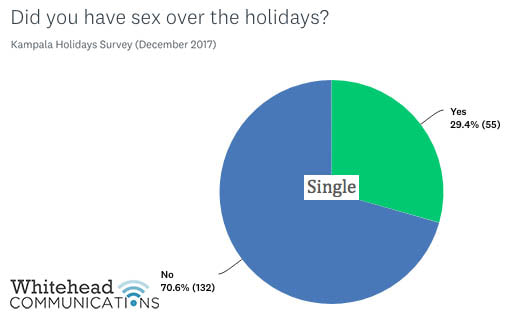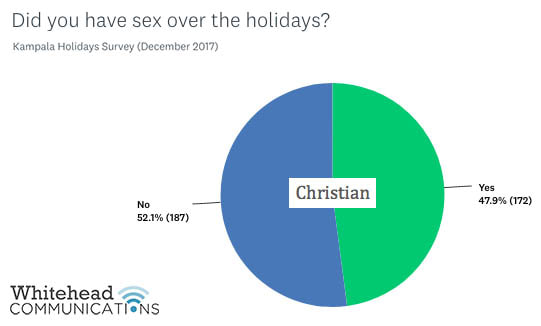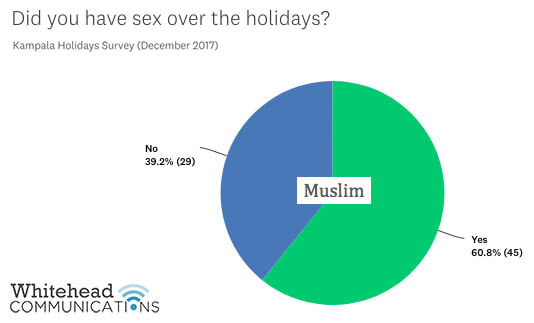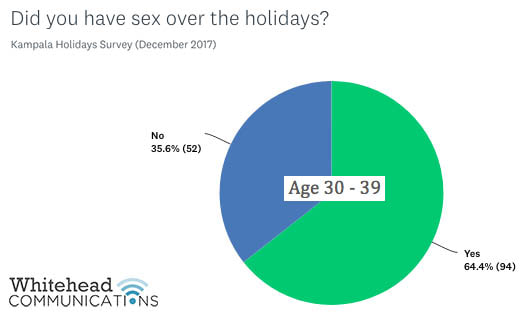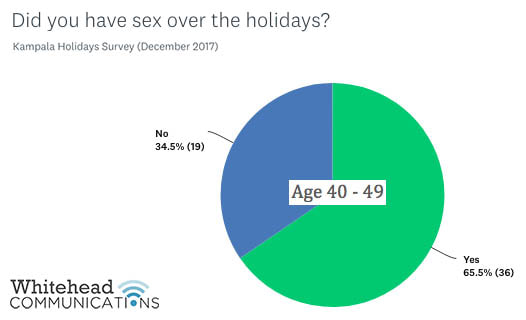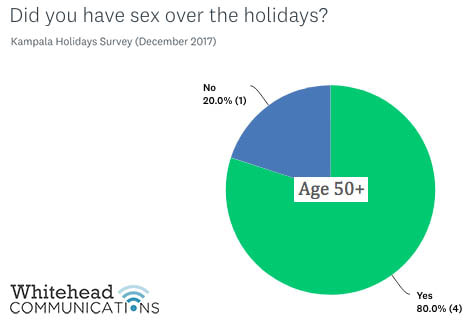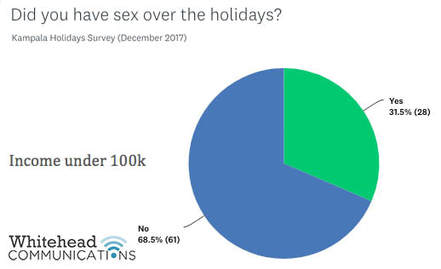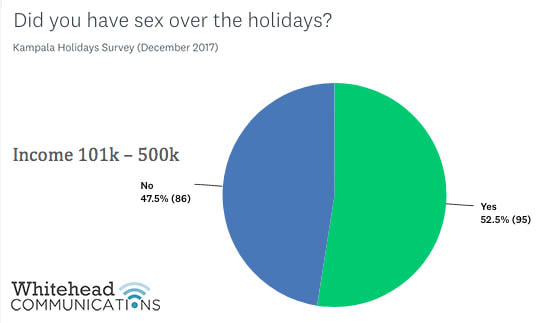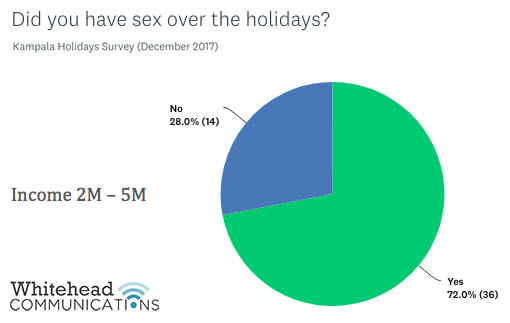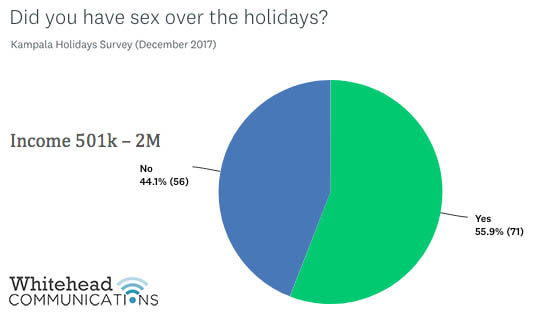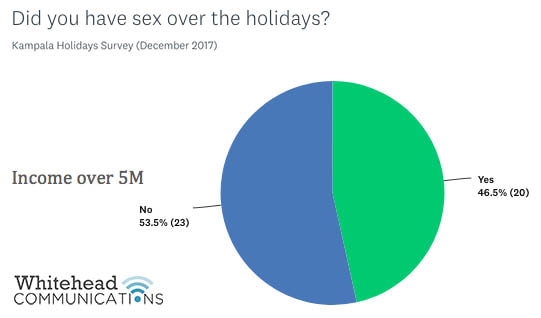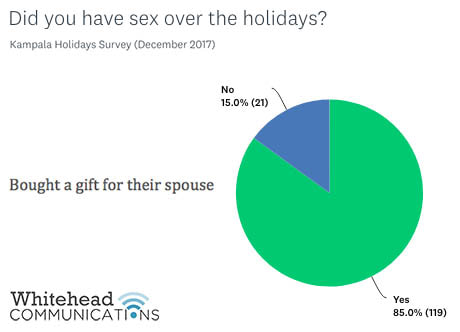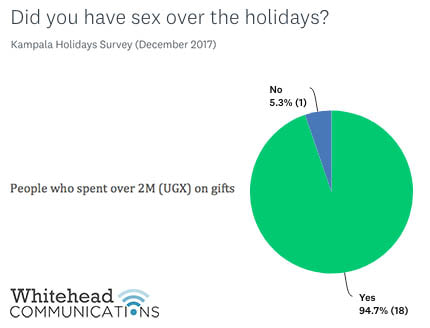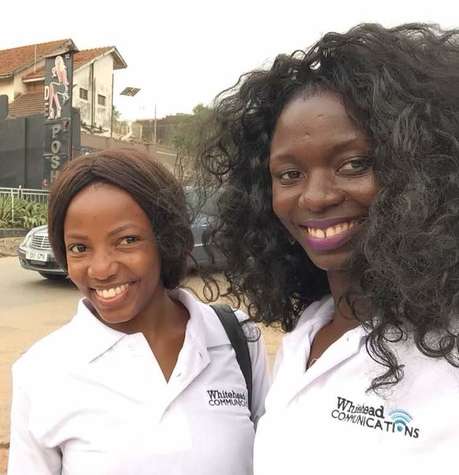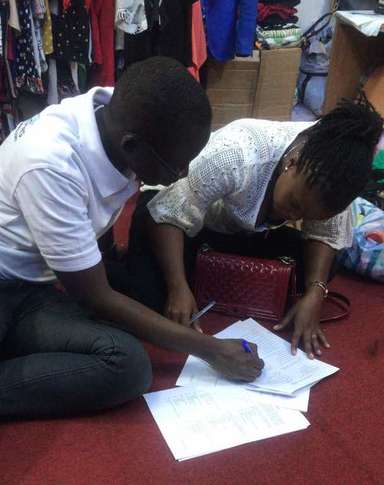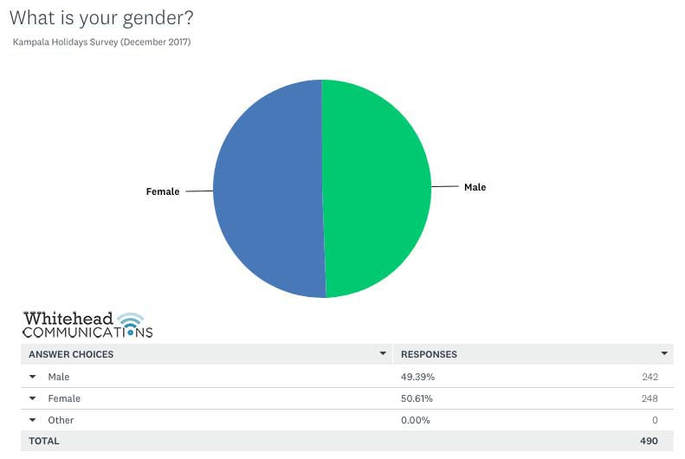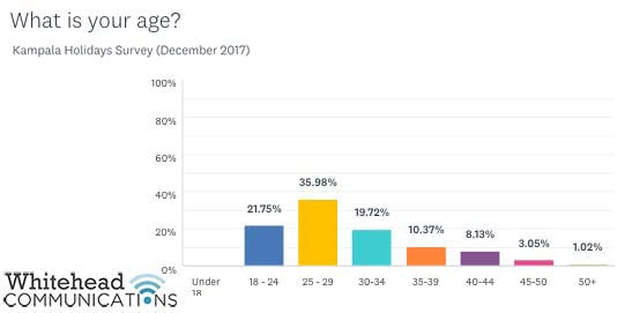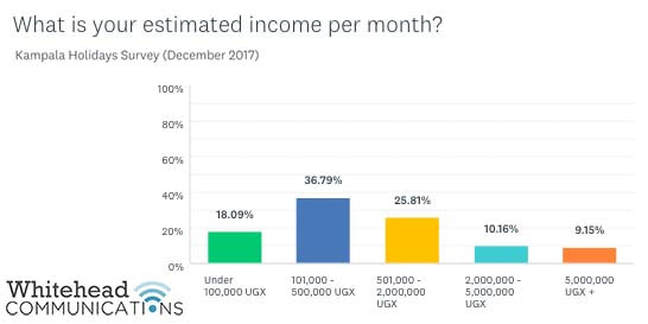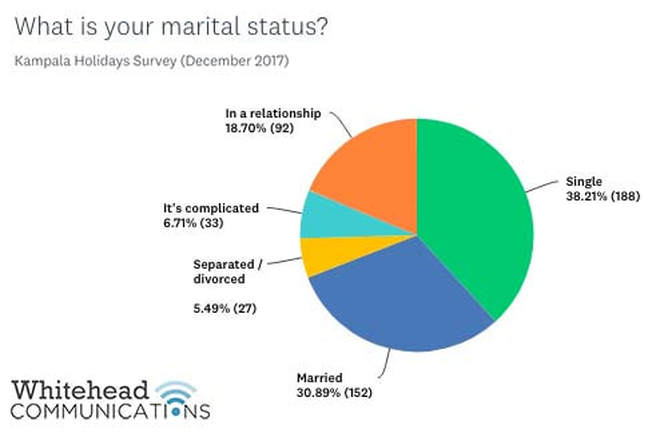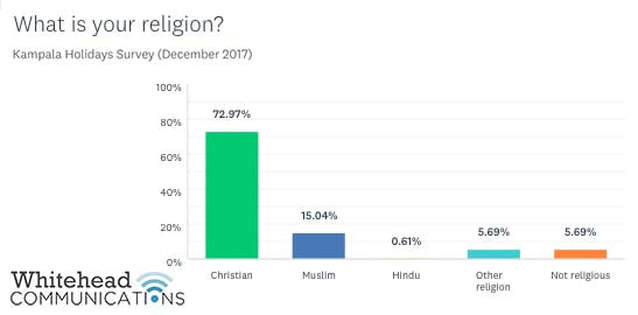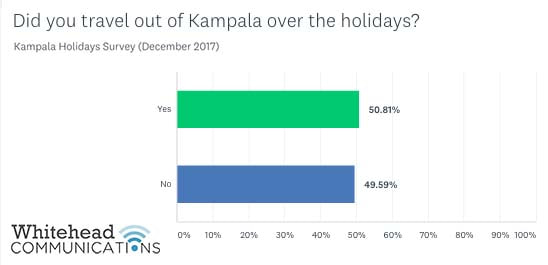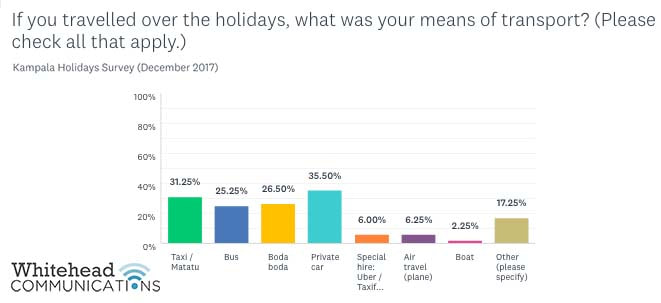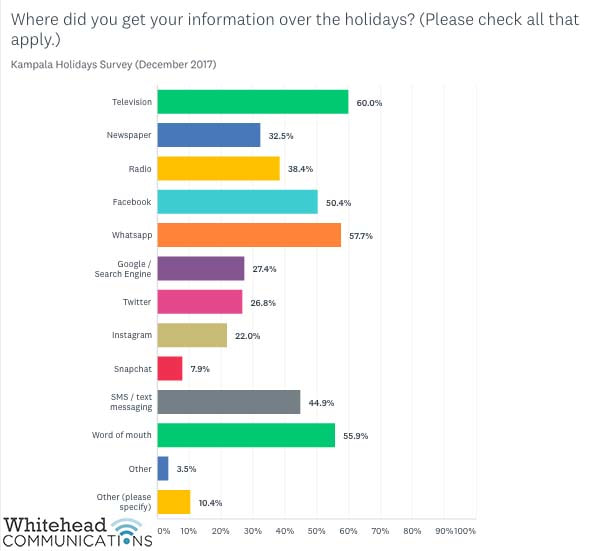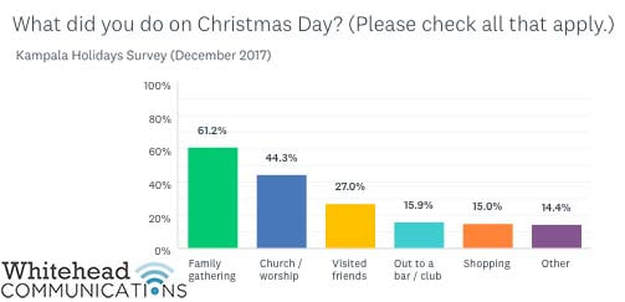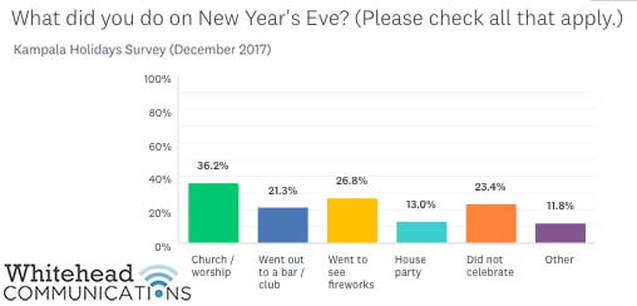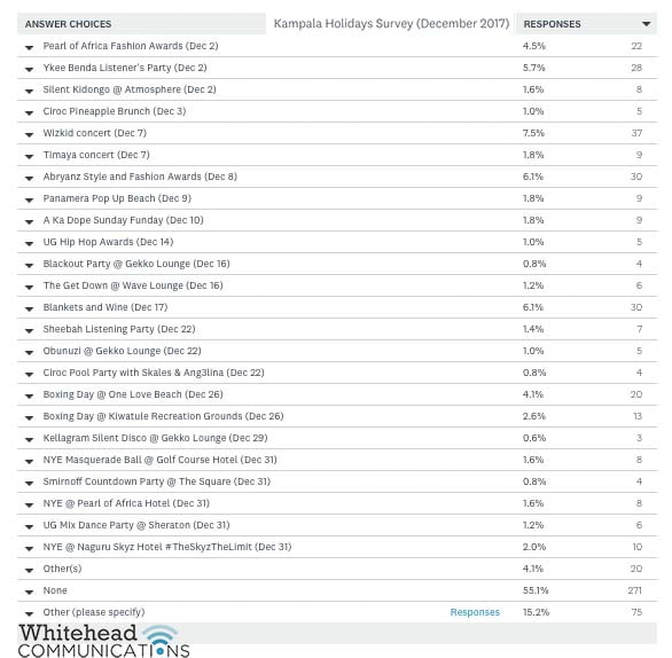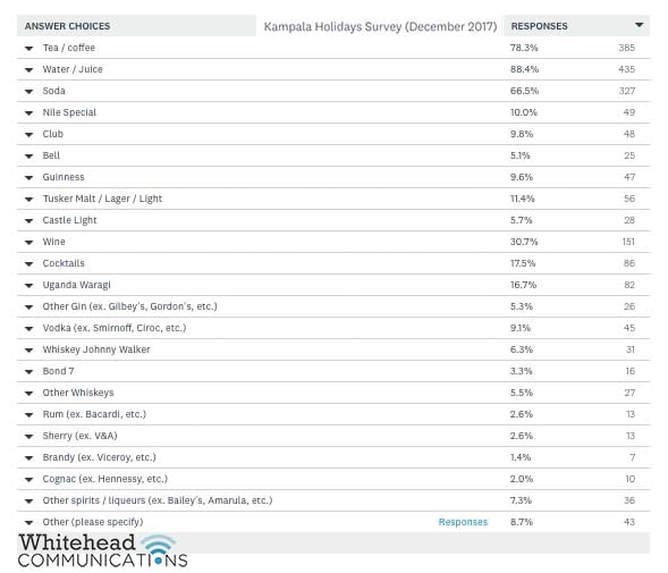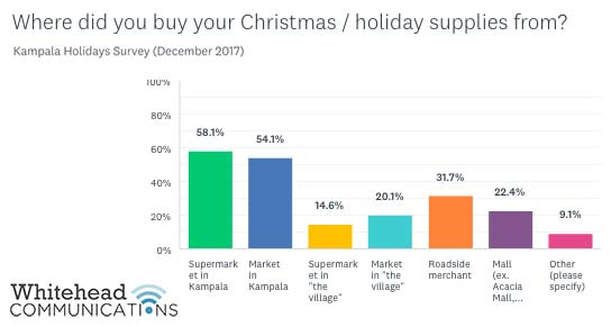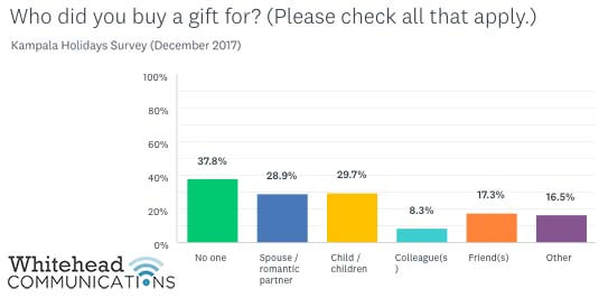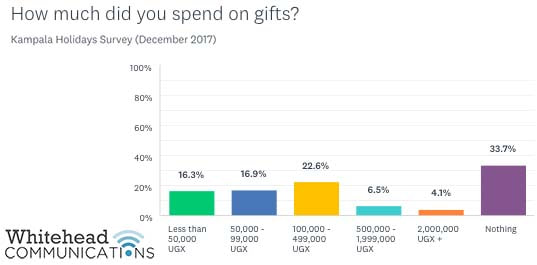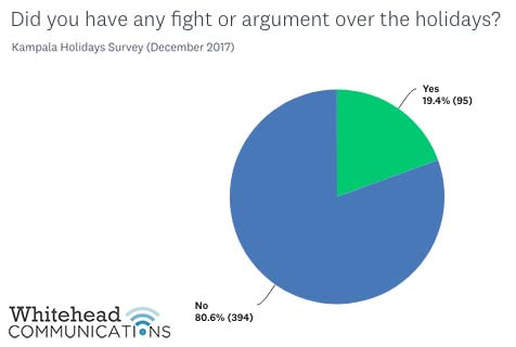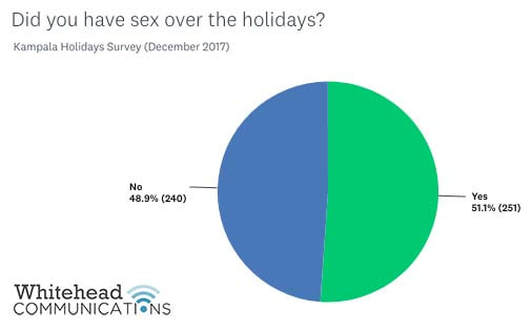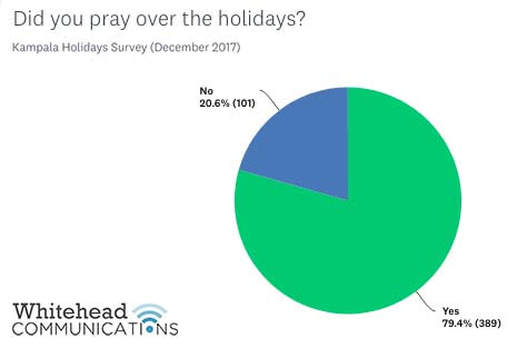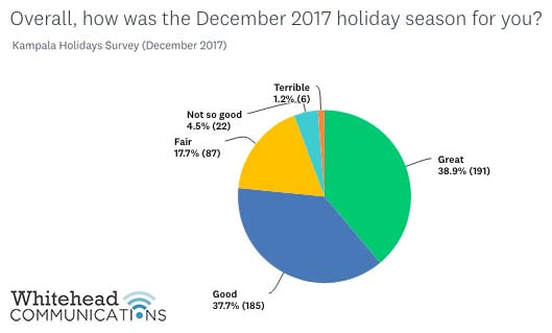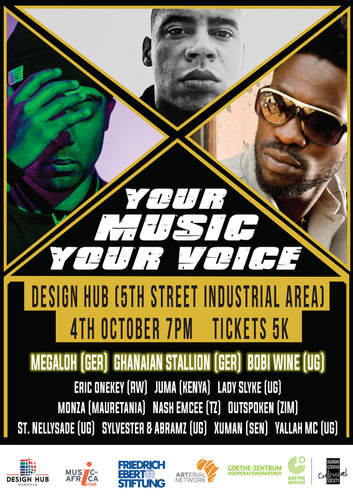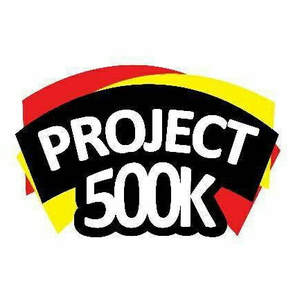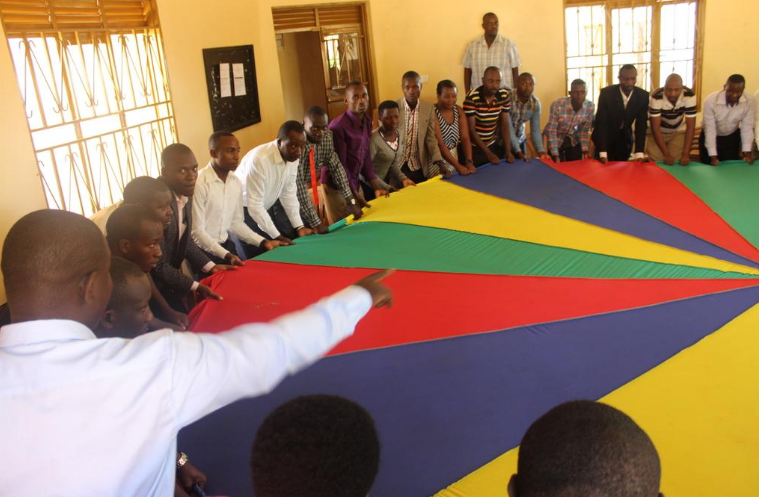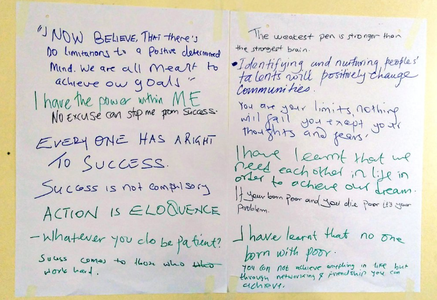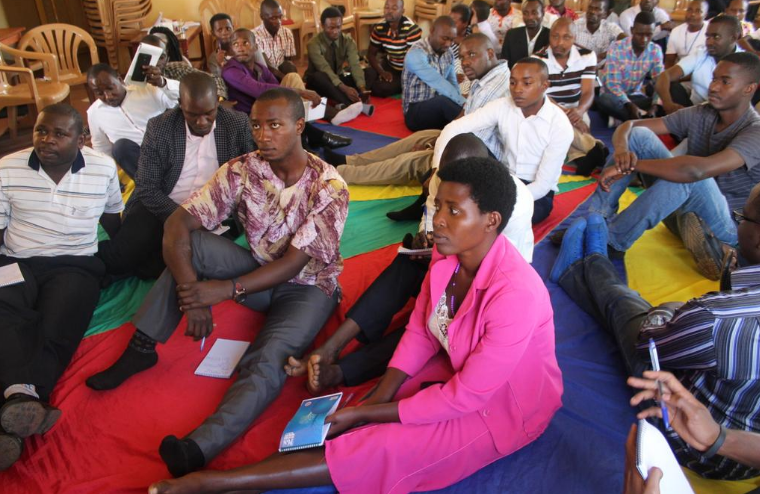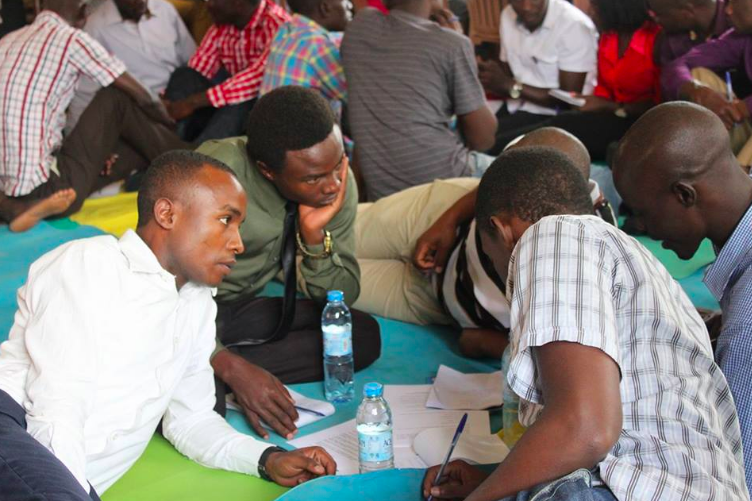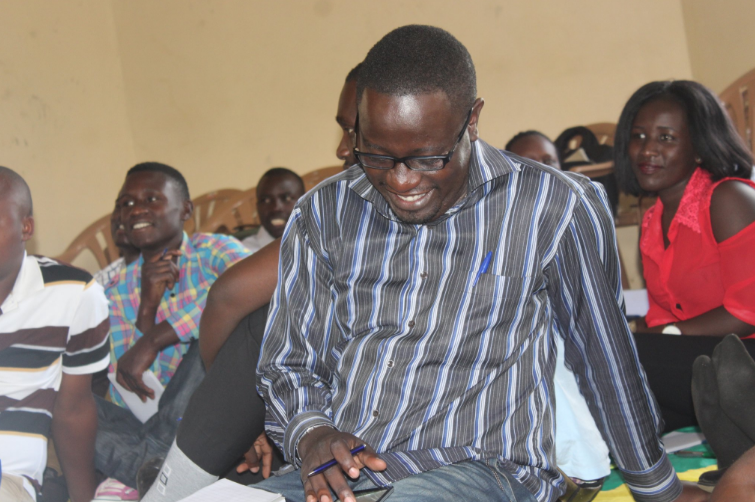On March 23rd of 2020, the United Kingdom shut down to stop the spread of Coronavirus. Alongside official government efforts, local community groups quickly began forming to patch the holes in their social safety net. Neighbours reached out to support one another with the resources and information they needed to adapt quickly to a frightening new reality. In a remarkable example of humanity's good will and togetherness, new localised networks emerged to face a common threat.
The Croydon Covid-19 Mutual Aid (CCMA) group was formed in March of 2020 to organize willing volunteers in this South London community to aid each other to overcome new challenges brought on by the Covid-19 pandemic and lockdown. In the following months, thousands of community members joined the CCMA Facebook group, leaflets were delivered door-to-door, a help line was set up and dozens of ward-level WhatsApp groups were formed, which organised volunteer activities and connected members to local aid organisations.
In May of 2020, it became clear that the needs of the community were changing. Some people began returning to work and some CCMA fora became less active, while many continued shielding and new issues began to emerge such as mental health and financial hardship brought on by the massive disruption to people's social lives and the economy. At the end of May 2020, Whitehead Communications collaborated with the CCMA to put together the following survey to gather feedback from the community about how to shift its strategy and hold together while addressing the changing demands of the community.
The survey gathered 234 responses over a two-week period from 28th May to 14th June, 2020. Survey respondents came from across 19 wards, with the largest share from Addiscombe (16.4%) and Thornton Heath (13.4%), and a range of different age groups, the largest share between the ages of 35 and 44 (31.2%).
The Croydon Covid-19 Mutual Aid (CCMA) group was formed in March of 2020 to organize willing volunteers in this South London community to aid each other to overcome new challenges brought on by the Covid-19 pandemic and lockdown. In the following months, thousands of community members joined the CCMA Facebook group, leaflets were delivered door-to-door, a help line was set up and dozens of ward-level WhatsApp groups were formed, which organised volunteer activities and connected members to local aid organisations.
In May of 2020, it became clear that the needs of the community were changing. Some people began returning to work and some CCMA fora became less active, while many continued shielding and new issues began to emerge such as mental health and financial hardship brought on by the massive disruption to people's social lives and the economy. At the end of May 2020, Whitehead Communications collaborated with the CCMA to put together the following survey to gather feedback from the community about how to shift its strategy and hold together while addressing the changing demands of the community.
The survey gathered 234 responses over a two-week period from 28th May to 14th June, 2020. Survey respondents came from across 19 wards, with the largest share from Addiscombe (16.4%) and Thornton Heath (13.4%), and a range of different age groups, the largest share between the ages of 35 and 44 (31.2%).
We asked respondents how they would describe their role in the CCMA.
More than half (53.8%) identified themselves as volunteers. This question allowed for multiple responses.
Second to volunteer, people identified themselves as a "resident in need", then a "WhatsApp group admin" and "other", which included descriptions like "resident", "member", "vulnerable person" and "concerned citizen". The survey also gathered responses from people who identified as having roles at a local food banks, soup kitchens, public servants, places of worship, GP surgery staff, local businesses, residents associations, community link builders, local hubs and charity organizations.
More than half (53.8%) identified themselves as volunteers. This question allowed for multiple responses.
Second to volunteer, people identified themselves as a "resident in need", then a "WhatsApp group admin" and "other", which included descriptions like "resident", "member", "vulnerable person" and "concerned citizen". The survey also gathered responses from people who identified as having roles at a local food banks, soup kitchens, public servants, places of worship, GP surgery staff, local businesses, residents associations, community link builders, local hubs and charity organizations.
We asked how people first heard about the CCMA.
Most (54.5%) heard about us through Facebook. This was followed by WhatsApp (17.2%), Leaflets (12.9%), told by a friend/neighbour (11.2%), and other channels including Google search, an email from the local MP Sarah Jones (4.3%), Croydon Council, TV, Newspaper, NARA Residents Association, the Next Door App, CVA, a GP and the survey itself.
Most (54.5%) heard about us through Facebook. This was followed by WhatsApp (17.2%), Leaflets (12.9%), told by a friend/neighbour (11.2%), and other channels including Google search, an email from the local MP Sarah Jones (4.3%), Croydon Council, TV, Newspaper, NARA Residents Association, the Next Door App, CVA, a GP and the survey itself.
We asked people which services they were aware that CCMA offers.
Most were aware of shopping services (91.5%). The majority were also aware of phone befriending (67.9%). The third most known service was dog walking (46.2%). Not many respondents knew about the availability of £15 food parcels (23.9%). Other services that people knew about were collecting prescriptions (8.1%), food bank referrals, information sharing, and 6.4% were not aware of any services.
Most were aware of shopping services (91.5%). The majority were also aware of phone befriending (67.9%). The third most known service was dog walking (46.2%). Not many respondents knew about the availability of £15 food parcels (23.9%). Other services that people knew about were collecting prescriptions (8.1%), food bank referrals, information sharing, and 6.4% were not aware of any services.
We asked: "Are you willing to volunteer in your community through the CCMA on an ongoing basis, even as the lockdown loosens and people return to work?"
Yes - 62.3% (144 respondents)
No - 12.6% (29 respondents)
Maybe - 25.1% (58 respondents)
The good news is that most CCMA volunteers wish to continue! The "maybes" were mostly also willing to continue volunteering, dependent on the what is needed and their availability.
Yes - 62.3% (144 respondents)
No - 12.6% (29 respondents)
Maybe - 25.1% (58 respondents)
The good news is that most CCMA volunteers wish to continue! The "maybes" were mostly also willing to continue volunteering, dependent on the what is needed and their availability.
We asked: "What are the greatest challenges you expect to face in the coming months that you believe could be overcome through community mutual aid?"
Some key trends emerged, including:
- People who remain shielding need support with shopping and other errands
- Community should prepare to respond to any further spikes in cases or lockdowns
- People need referrals to organizations that help with food security, housing, employment, childcare and other types of aid
- People need reliable information, such as: official updates, available support, promoting local businesses and community activities, job opportunities and how others are coping
- Local businesses and people who lost their jobs need help to recover financially
- There is more loneliness, agoraphobia, depression and other mental health issues
- People miss opportunities to socialize, "community spirit" and "togetherness"
- The community suffers from inequality, social discord and concerns like racism (note that Croydon is an ethnically diverse community and this survey was circulating during a resurgence of Black Lives Matter protests)
Some key trends emerged, including:
- People who remain shielding need support with shopping and other errands
- Community should prepare to respond to any further spikes in cases or lockdowns
- People need referrals to organizations that help with food security, housing, employment, childcare and other types of aid
- People need reliable information, such as: official updates, available support, promoting local businesses and community activities, job opportunities and how others are coping
- Local businesses and people who lost their jobs need help to recover financially
- There is more loneliness, agoraphobia, depression and other mental health issues
- People miss opportunities to socialize, "community spirit" and "togetherness"
- The community suffers from inequality, social discord and concerns like racism (note that Croydon is an ethnically diverse community and this survey was circulating during a resurgence of Black Lives Matter protests)
We asked: "Is there anything that you think the CCMA could do to help our community in the coming months that it may not be doing already?"
Suggestions for what CCMA could do in the coming months included:
- Continue to seek out and support elderly and vulnerable people in our community
- Share more information about: available support services, educational resources, job opportunities / career advice, buying local, outdoor activities, specific requests for help
- Connect people in specific groups or pairings for emotional/practical support, ex. parents with children, elderly with neighbours, similar skills/interests, shared resources
- Partner with organisations: Postcards of Kindness, Age UK, CVA, Resident Associations
- Organise communications: listen more, report back on what the CCMA is doing, weekly newsletter, put up posters on notice boards and other offline channels, social media ads
- Educate people on community interest, ex. pick up rubbish, maintain social distance
Suggestions for what CCMA could do in the coming months included:
- Continue to seek out and support elderly and vulnerable people in our community
- Share more information about: available support services, educational resources, job opportunities / career advice, buying local, outdoor activities, specific requests for help
- Connect people in specific groups or pairings for emotional/practical support, ex. parents with children, elderly with neighbours, similar skills/interests, shared resources
- Partner with organisations: Postcards of Kindness, Age UK, CVA, Resident Associations
- Organise communications: listen more, report back on what the CCMA is doing, weekly newsletter, put up posters on notice boards and other offline channels, social media ads
- Educate people on community interest, ex. pick up rubbish, maintain social distance
We asked: "Do you or your organization have any skills or services to offer the local community (or are already doing so), which you think the CCMA should know about?"
Available skills and services in our community included:
- Shopping, dog walking and phone befriending
- Youth mentorship
- Elderly support and healthcare
- Legal advice- Data analysis
- Tech support
- Tutoring, English language and referrals to further training
- Meditation and art therapy
- Chef / cooking- Valuing / selling antiques
- Community mobilization and stakeholder engagement
- Marketing and digital marketing
We asked: "What do you feel is the best method for CCMA to communicate with you?" This question allowed people to select multiple responses.
The majority of respondents selected WhatsApp as their preference (76.8%). However, 75% of the survey responses were retrieved through WhatsApp shares, so this is likely not representative of the overall Croydon community.
Other popular channels of communication included email (55.7%), SMS (28.9%), Facebook (23.2%) and Phone Calls (16.7%). Other communications channels included Slack (9.2%), through local community organizations (7.9%), Twitter (6.6%), Messenger, leaflets, Face-to-Face meetings and places of worship.
Available skills and services in our community included:
- Shopping, dog walking and phone befriending
- Youth mentorship
- Elderly support and healthcare
- Legal advice- Data analysis
- Tech support
- Tutoring, English language and referrals to further training
- Meditation and art therapy
- Chef / cooking- Valuing / selling antiques
- Community mobilization and stakeholder engagement
- Marketing and digital marketing
We asked: "What do you feel is the best method for CCMA to communicate with you?" This question allowed people to select multiple responses.
The majority of respondents selected WhatsApp as their preference (76.8%). However, 75% of the survey responses were retrieved through WhatsApp shares, so this is likely not representative of the overall Croydon community.
Other popular channels of communication included email (55.7%), SMS (28.9%), Facebook (23.2%) and Phone Calls (16.7%). Other communications channels included Slack (9.2%), through local community organizations (7.9%), Twitter (6.6%), Messenger, leaflets, Face-to-Face meetings and places of worship.
These survey results suggest that the Croydon Covid-19 Mutual Aid (CCMA) members overall do wish to hold together as a community and continue providing support to each other as the crisis develops into a new stage. Emerging community demands include mental health and financial struggles, and making sure that no one is left behind. The CCMA can continue to play its role to connect, inform and serve our community while not forgetting about the vulnerable people who are still shielding. In the coming weeks, CCMA will adapt its communications strategy and ways of working in order to listen and respond to feedback from our community.
This survey was managed by Anne Whitehead, Director of Whitehead Communications and a CCMA volunteer, in coordination with the CCMA organising committee. We are grateful to all those who responded for taking the time to contribute your ideas, and encourage people who live or work in Croydon to continue engaging with the CCMA.
You can find out more about the CCMA at www.croydoncovid19mutualaid.uk or contact [email protected] / 020 3322 8379.
This survey was managed by Anne Whitehead, Director of Whitehead Communications and a CCMA volunteer, in coordination with the CCMA organising committee. We are grateful to all those who responded for taking the time to contribute your ideas, and encourage people who live or work in Croydon to continue engaging with the CCMA.
You can find out more about the CCMA at www.croydoncovid19mutualaid.uk or contact [email protected] / 020 3322 8379.

